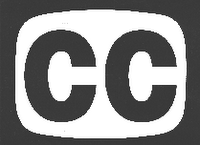 The WSJ Law Blog unearths this tidbit from the Washington Post:
The WSJ Law Blog unearths this tidbit from the Washington Post:
The National Association of the Deaf has filed a lawsuit against the Washington Redskins to get team officials to offer closed-captioning for the deaf and hearing-impaired at FedEx Field.A Redskins spokesman says that the team is exploring closed captioning technolgoies "even though NFL teams are not required by law to offer closed-captioning in the stadium." I'm not so sure that the NFL is giving its teams good advice about the ADA on that point. What is the basis for its claim that Title III of the ADA wouldn't require closed captioning? There has been extensive litigation and commentary on whether the ADA mandates particular "lines of sight" for wheelchair bound fans at sports arenas. See, e.g., Adam A. Milani, "Oh Say, Can I See--And Who Do I Sue If I Can't?": Wheelchair Users, Sightlines over Standing Spectators, and Architect Liability Under the Americans with Disabilities Act, 52 FLORIDA LAW REVIEW 523 (2000). None of this law, that I'm aware of at least, would immunize the NFL from a Title III (public accomodations) suit under the ADA. "Reasonable modifications" must be made if they would not amount of a "fundamental alternation" of the services provided, and a stadiums are explicitly covered under the definition of "public accomodation." After all, the ADA regulations provide:
The class-action suit, filed in U.S. District Court in Greenbelt, says the team is in violation of the Americans With Disabilities Act for failing to provide captioning during games.
* * *
The complaint was filed Aug. 31 on behalf of three fans from Maryland who regularly attend home games. It asks the court to order the Redskins and FedEx Field officials to provide and display captioning on scoreboards and video monitors for all announcements, plays and penalties called during the game.
"I am a lifelong die-hard Redskins fan and I love watching the Redskins play at FedEx Field," Shane Feldman of Silver Spring said in a statement. "But I miss out on the total game experience because I cannot hear the information announced on the public address system. Providing captioning is not rocket science; it is simple, and it is the right thing to do."
A public accommodation shall take those steps that may be necessary to ensure that no individual with a disability is excluded, denied services, segregated or otherwise treated differently than other individuals because of the absence of auxiliary aids and services, unless the public accommodation can demonstrate that taking those steps would fundamentally alter the nature of the goods, services, facilities, privileges, advantages, or accommodations being offered or would result in an undue burden, i.e., significant difficulty or expense.Thoughts?
The case was filed by Joseph B. Espo, an attorney with Brown, Goldstein & Levy, LLP in Baltimore, Maryland, according to the NAD's August 31 press release. There is some discussion of the technical issues involved in closed captioning in the comments section on the Deaf DC Blog here.





0 comments:
Post a Comment